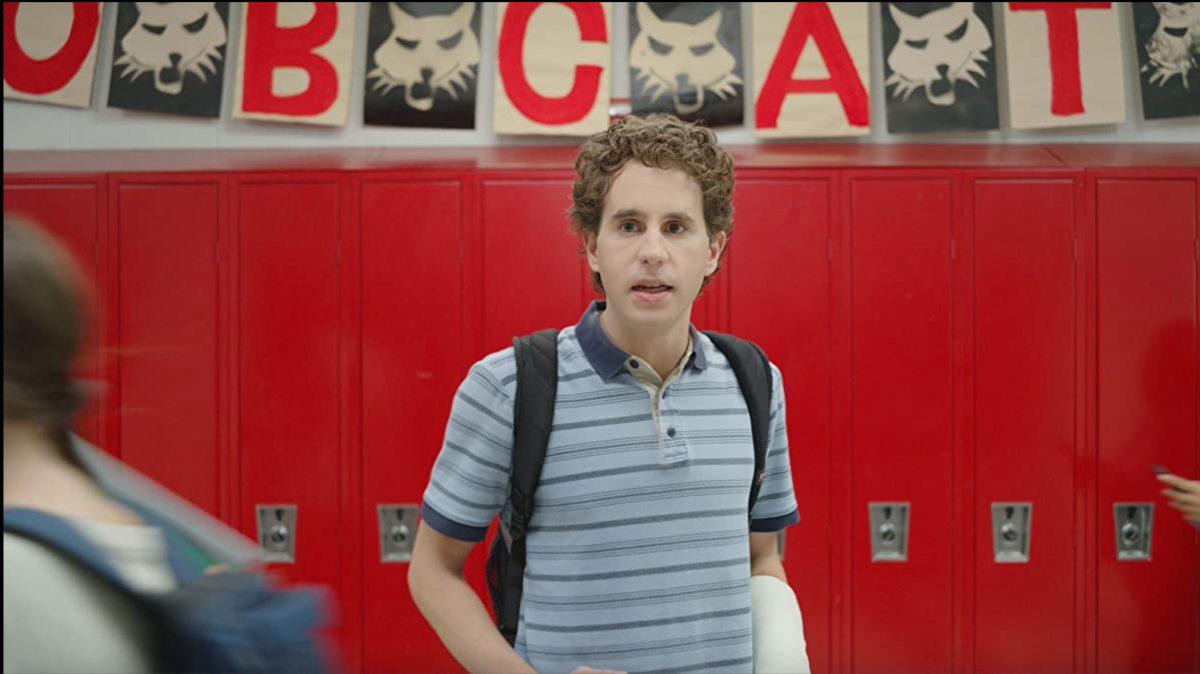
“Dear Evan Hansen” begins with a giant cursor blinking on an empty document. By the end of the movie, you’ll wish the main character never began typing.
Directed by Stephen Chbosky and adapted from the Broadway show of the same name, the movie has a touching message of love and acceptance at its core. But its directorial missteps and glaring miscasting of the titular character shroud the source material’s genius. In short, “Dear Evan Hansen” is a deeply complex tale with one too many flaws to survive the telling.
The Broadway musical featured music by songwriting duo Benj Pasek and Justin Paul (think “La La Land” and “The Greatest Showman”). It was a smash hit, garnering six Tony Awards, including Best Musical. On paper, the movie adaptation’s creative team seemed suited to nail the delicate art of stage-to-screen translation for its theatrical release on Sept. 24. Steven Levenson, who won a Tony for the stage musical’s book, wrote the screenplay. Stephen Chbosky of “The Perks of Being a Wallflower” took the helm as director.
But the perfect team doesn’t always produce the perfect movie — especially when the source material is as profoundly complex as that of “Dear Evan Hansen.”
The story follows a lonely, socially-anxious high schooler named Evan Hansen (Ben Platt), whose life is changed after a classmate, Connor Murphy (Colton Ryan), dies by suicide. As Evan spins a complicated web of lies about his relationship with Connor, he is ushered into a journey of radical acceptance and love that, with the help of a little internet virality, touches his entire community.
Both the stage and film versions’ stories are propelled by the lies Evan tells. On stage, we root for him — he’s young and lonely, and in several of Pasek and Paul’s powerful ballads, his loved ones confront him for the mess he has made. This crucial sympathy for the protagonist is not present in the film, though. Platt’s Evan is anything but youthful, and several vital songs and plot points that hold Evan accountable for his actions are cut entirely. What’s left is a strange psychodrama about a manipulative, questionably-aged man.
At best, when the lighting is good and the angle is just right, we can picture him as a very old-looking high schooler, and his beautiful vocals draw us in enough to care. At worst, it feels uncomfortable, bordering on predatory, to watch him pine over the girl from jazz band.
The movie’s saving grace comes from the performances of the ensemble cast. Amy Adams, Julianne Moore and Danny Pino step in as the story’s quietly grieving parental figures; Kaitlyn Dever (“Booksmart”) navigates the sudden loss of her vengeful brother with depth and nuance as Zoe Murphy; and Amandla Stenberg’s Alana and Ryan’s Connor both fill their now-expanded roles with touching vulnerability.
When these actors get the chance to move and breathe within the story — and, to be frank, when Platt is off screen — the story’s emotional core reveals itself. At their best, Pasek and Paul’s songs fit seamlessly into these moments, elevating the actors’ raw performances with their soaring melodies and orchestration.
“You could call it a drama with songs,” Chbosky said in an interview with Vanity Fair. “It feels seamless. It’s the reason why it works so beautifully onstage.” Unfortunately, it’s not always so seamless. Too often, the audience is left wondering why this almost-30-year-old just started singing at the dinner table.
At a live theatrical performance, there’s an air of suspended belief; songs can operate as smooth plot devices in such a space. However, Chbosky relied too heavily on that energy to carry into the cinematic medium. The result feels clunky — a real loss, considering the genius and poignance of the source material.
That’s the thing about “Dear Evan Hansen” — if you’re able to get past the foundation-caked, clearly-adult elephant in the room, there’s a touching story to be found. But Chbosky expects too much of the audience.
To his credit, the director doesn’t completely waste the potential of the work’s new cinematic medium. As the Murphy family grieves, Chbosky follows Zoe in the halls of her school, Mrs. Murphy in the aisles of the grocery store and Mr. Murphy at work — spaces into which the theatrical version couldn’t peer. We feel the heavy stares of well-intentioned bystanders. This is Chbosky at his best.
Other times, such as during Evan’s ballad “For Forever,” Chbosky inexplicably chains us to the dinner table, wasting the unique world-expanding mechanisms cinema offers. At times like this, it’s impossible to escape the consequences of the movie’s worst decision: casting Ben Platt as a 17-year-old.
Perhaps Chbosky was right, and Platt was the only actor who could fill Evan’s shoes. In that case, perhaps the movie was doomed from the beginning. Maybe it should have been made five years ago — maybe five years from now. Either way, it wasn’t, and now we have this strange, compelling and slightly off-putting time capsule of an already complicated work.
The only hope left is that it ages better than its lead.Edited by Elise Mulligan | [email protected]